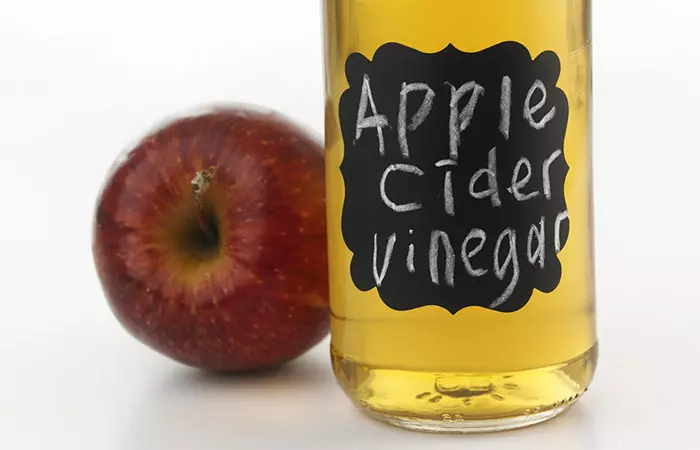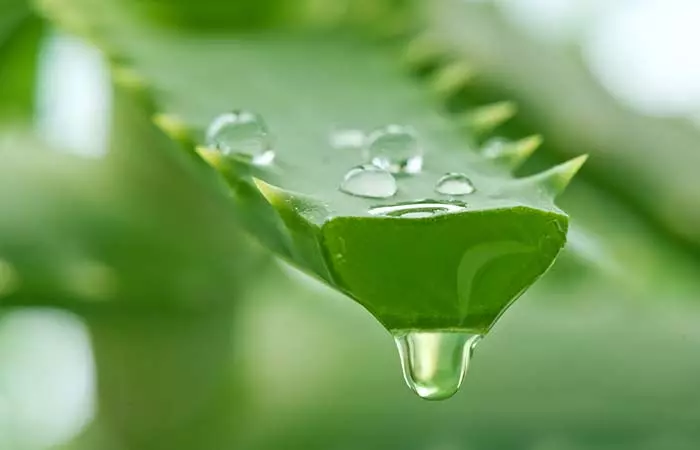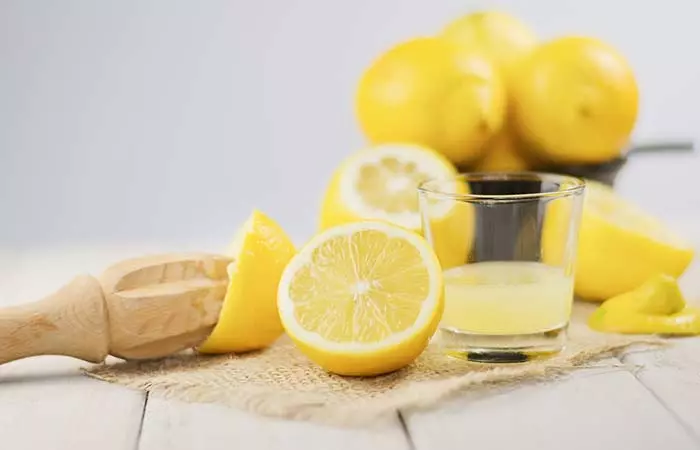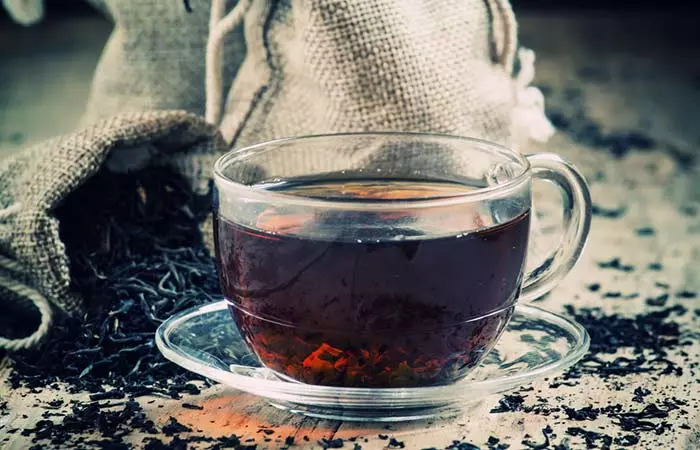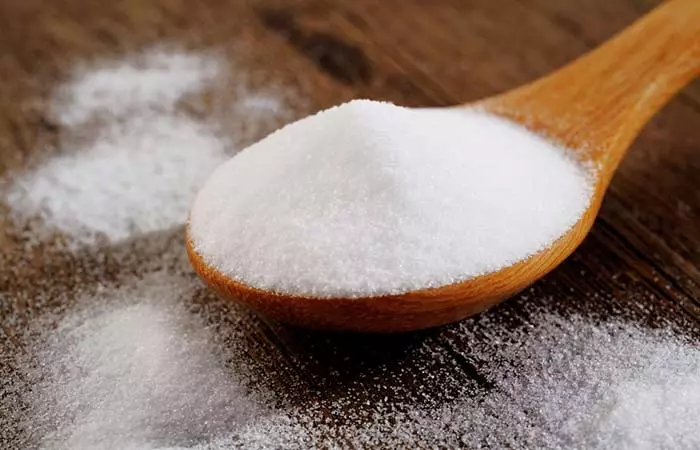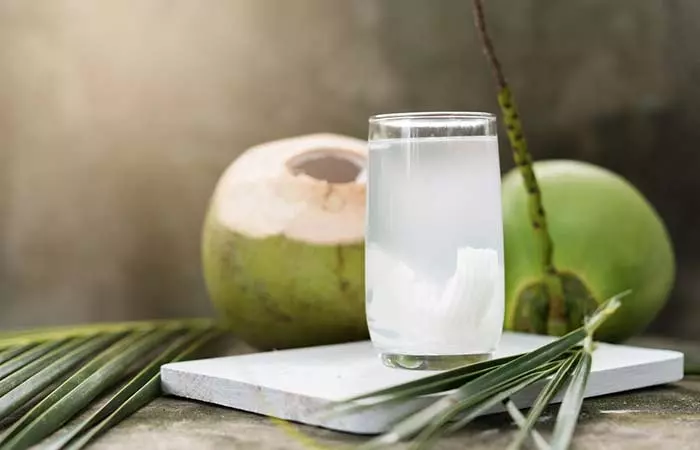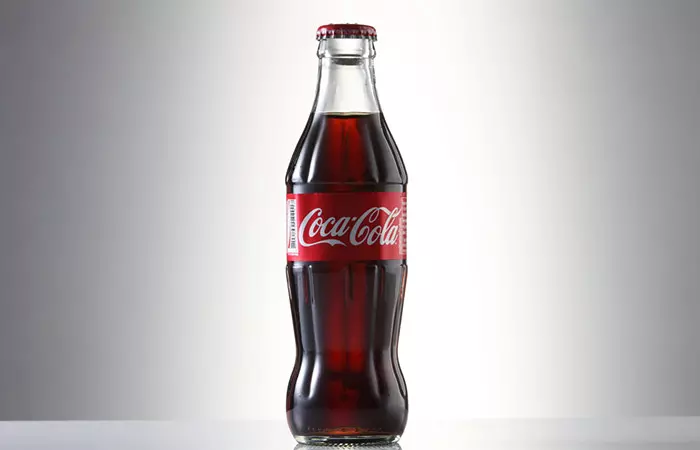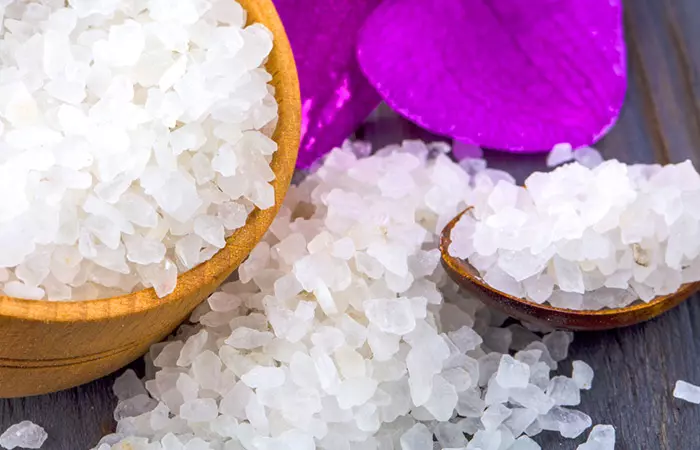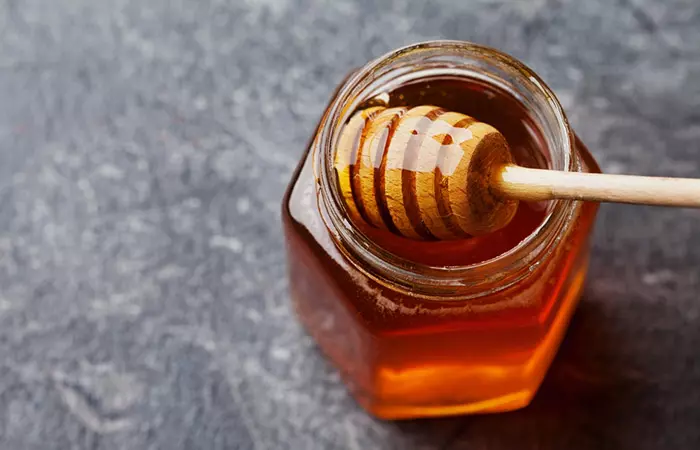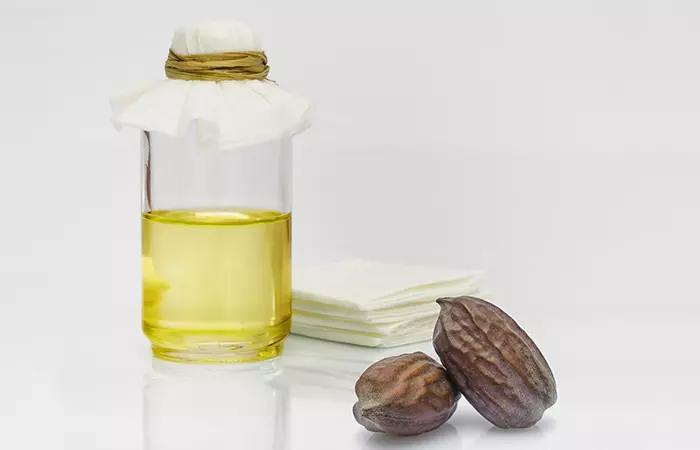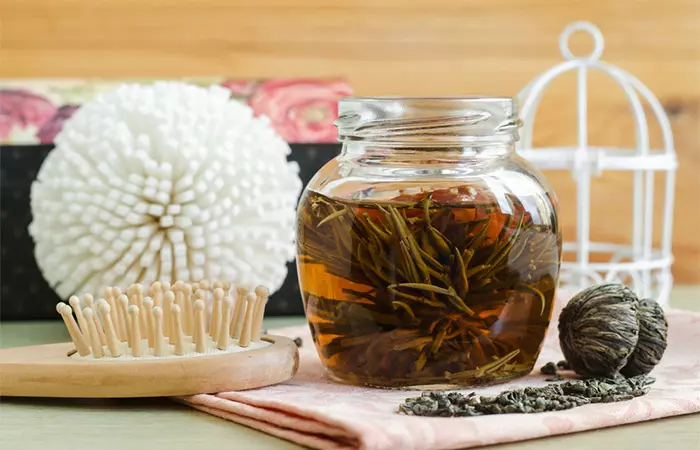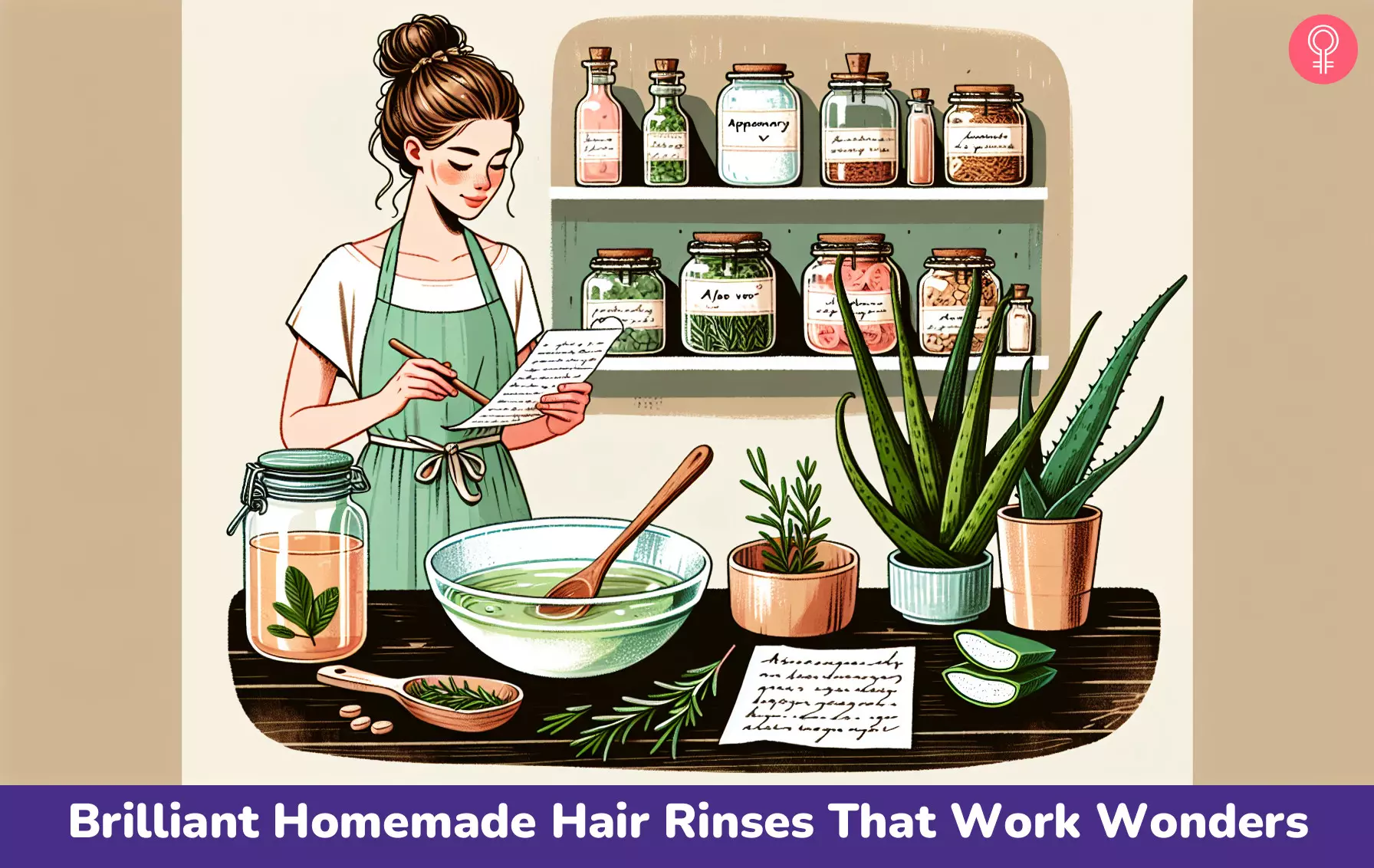Why Do You Need A Hair Rinse?
If you’re still unsure and a bit skeptical about using hair rinses, the following is a list of reasons why you should try it.
Hair rinses are rich in nutrients that help in the nourishment of hair. They also help add moisture to the hair shaft, calming frizz and making hair soft and shiny. They reduce breakage and split ends. Some hair rinses help balance the pH levels of your scalp. They also help balance oil production, which helps tackle issues like oiliness, dandruff, and hair fall. Hair rinses help clarify your hair and unclog your follicles. This makes your hair smooth, strong, and silky.
Keep reading to find out how to use a hair rinse and the different natural ingredients you can use to prepare hair rinses at home.
How To Use A Hair Rinse
A hair rinse is essentially the last step of washing your hair. It’s super simple and hardly takes a couple of extra minutes.
Shampoo Conditioner Hair rinse
15 minutes Here are some easy to use hair rinses that you can make at home:
1. Apple Cider Vinegar Hair Rinse
2 tbsp apple cider vinegar 1 cup water
This is one of the simplest hair rinses you can make. Simply dilute 2 tablespoons of apple cider vinegar with 2 cups of water. You can use this hair rinse 1-2 times a month. Apple cider vinegar helps remove grease and product build-up from your hair while balancing the pH and oil production. You may also use apple cider vinegar for dandruff. Its anti-microbial properties and anti-inflammatory effects may help combat dandruff-causing Malassezia and offer relief from itching. However, there is limited research in this regard.
2. Aloe Vera Juice Hair Rinse
2 tbsp pure aloe vera gel 2 cups water
Blend the aloe vera gel and the water together until you get a consistent liquid. Collect the diluted aloe vera in a jar to use for your hair. You can use this rinse once a week. Aloe vera is a sun protectant for your hair and helps manage hair loss, dandruff, and other scalp inflammation (1). It is an effective treatment for seborrheic dermatitisi A skin condition that predominantly affects the scalp and causes dandruff, dry, scaly patches, and inflammation. and damaged follicles. This ingredient may also help boost scalp health through its antimicrobial properties (2). Doro Cubillo, a lifestyle content creator, uses aloe vera at least once a month to promote hair growth and combat dryness. She shares her experience in one of her vlogs as follows: “In my opinion, my hair always recharges with this treatment. It feels much healthier, stronger, moisturized, and very very shiny after doing an aloe vera hair mask (i).”
3. Lemon Juice Hair Rinse
1 tbsp lemon juice 2 cups water
This hair rinse is just as simple to make as the apple cider vinegar rinse. All your need to do is dilute the lemon juice with 2 cups of water. You can use this rinse once every one or two weeks. Lemon helps boost hair growth while also balancing oil production. The rich content of vitamin C increases collagen production, which helps your hair grow faster (3).
4. Black Tea Hair Rinse
2-3 tea bags of black tea 2 cups water.
Boil 2 cups of water and then steep the tea bags in the water. Let it steep for a couple of hours until the tea has completely cooled. Use this rinse once a week. This is an amazing hair rinse for reducing hair loss and boosting healthy hair growth. According to a study, a Chinese black tea extract was found to improve hair growth in mice (4). Since black tea is a rich source of caffeine, it helps block DHTi Short for dihydrotestosterone, the most potent androgen sex hormone responsible for the sexual development of men. production, which, in turn, curbs hair fall (5) (6). It also helps darken your hair color by staining it. If you want tea rinses for hair that won’t color your hair, you can prepare it the same way using chamomile, jasmine, kombucha, or green tea.
5. Baking Soda Hair Rinse
1/2 cup baking soda 1 cup warm water
Mix the baking soda and water in a bowl until you get a smooth paste. Unlike other rinses, this one cannot be used as a final rinse. You can use this baking soda rinse to replace your shampoo, or you can use it after you shampoo and before you condition your hair. Simply apply and massage the rinse into your scalp and hair. Rinse it off with cool water and then proceed to condition your hair. Use this hair rinse once a month for oily hair. Baking soda is extremely efficient at removing dirt, grease, and product buildup from your hair. It acts as a clarifying solution that cleans and boosts scalp health by balancing pH and oil production. However, the research is limited in this regard.
6. Coconut Water Hair Rinse
Unlike your regular rinse, you need to spritz this solution onto your hair rather than pour it through.
4 tbsp coconut water 2 tsp aloe vera juice 2 tsp jojoba oil Spray bottle
Pour the ingredients into a spray bottle and shake well to combine. Instead of pouring this rinse through your hair, spritz it on with the spray bottle before you proceed to style your hair. You can use this after every hair wash. Coconut water contains vitamins, minerals, and amino acids that are greatly beneficial when it comes to nourishing your hair. It also helps maintain hair elasticity and hydration, making it more manageable.
7. Coca-Cola Hair Rinse
2 bottles of Coca-Cola You cannot use Coca-Cola rinse as a final hair rinse. Instead, you can pour the coke through your hair and leave it in for about 5 minutes. Proceed to wash and condition your hair and then style it as you normally would. Once a week. Anecdotal evidence suggests that this method may help add body and texture to fine hair. It may enhance your hair’s natural curl while tightening the cuticle with its low pH. This helps add shine and smoothness to your hair.
8. Epsom Salt Hair Rinse
1 tbsp Epsom salt 1 tbsp conditioner
Combine equal parts of Epsom salt and conditioner. 1 tablespoon of each should be enough for short hair – you can increase the quantity for longer hair. Apply the mixture to your hair after shampooing. Leave it in for about 15-20 minutes and then rinse off with water. Unlike a regular hair rinse, you have to finish with a final water rinse for this method. You can use this hair treatment/rinse once a week. This Epsom salt conditioning treatment helps add volume and frizz control.
9. Honey Hair Rinse
2 tsp honey 2 tbsp apple cider vinegar 1 cup water
Pour the water into a jug, and to it add 2 tablespoons of apple cider vinegar and 2 teaspoons of honey. Stir well to combine and set it aside to use after you shampoo and condition your hair. You can use this hair rinse one or two times in a month. Honey is a well-knownhumectanti A substance that attracts and retains water molecules, used in cosmetics to preserve and aid the loss of moisture. . This means that it helps seal the moisture in your hair shaft (7). The benefits honey offer are boosted when combined with apple cider vinegar as the vinegar helps shut the cuticles with its low pH.
10. Jojoba Oil Hair Rinse
1 cup flat beer 1 tsp jojoba oil
Pour one cup of beer into a jug and leave it out for a couple of hours or overnight until it goes flat. To the flat beer, add one teaspoon of jojoba oil and mix well. You can also add some other essential oils to this. You can use this rinse once in two weeks. Beer is known for its conditioning properties (8). It helps make your hair silky and seals in moisture. This enhances the conditioning effects of jojoba oil, which forms a protective layer over your hair shaft, locking moisture in and adding shine (9).
11. Coffee Hair Rinse
2 tbsp coffee powder 2 cups water
Boil two cups of water and to it add the coffee powder. Let it steep and cool for a couple of hours. You can also leave it overnight to cool. Use this once a week. The caffeine in coffee helps prevent hair fall. This rinse also helps darken hair color by staining it. The caffeine in coffee helps prevent hair fall (5) (6). This rinse also helps darken hair color by staining it.
12. Green Tea Hair Rinse
1-2 green tea bags 1 cup of boiling water Add the green tea bags to boiling water and allow them to steep for 5 minutes. Strain the liquid and rinse your hair with it at the end of your shower. Massage the scalp for 2-3 minutes and rinse it off with lukewarm water. How Often
Once or twice a week. Why This Works Green tea contains EGCG which may help improve hair health. It may stimulate the hair follicles to boost hair growth and prevent damage to the scalp and hair cells. Therefore, it is one of the best solutions to improve your hair and scalp health (10).
Do rinses damage natural hair? Check out the infographic below to learn which are the most common and simple homemade hair rinses to make at home.Illustration: StyleCraze Design Team No, homemade rinses can benefit natural hair as they act as shedding prevention, adding hair shine, and making the hair stronger. Rinses also reduce scalp itching, which is a common issue with natural hair. Is there a rinse for gray hair? You can use a black tea or coffee rinse to tint gray hair brown. A henna and indigo herbal hair rinse will tint gray hair brown, while a plain henna rinse will color your hair reddish-orange. Can I rinse my hair without shampoo? Yes, you can rinse your hair without a shampoo, especially for those with curly or coiled hair to help prevent tangles. You can also use a deep conditioner after the rinse to moisturize your hair. What happens if I don’t rinse my hair? Dirt and oil accumulate in the hair and scalp over time. If not rinsed properly, this buildup can create a breeding ground for fungal infestation and cause hair damage. Can I rinse my hair with water every day? Yes, daily rinsing with water can keep your hair fresh and clean. Make sure the water is of the right temperature to prevent dryness or split ends. What is the best time to wash your hair? Washing the hair in the morning will give it enough time to dry and also give you a fresh and clean start to the day. If you prefer washing your hair in the evening, ensure it dries thoroughly before bed, as wet hair can easily get damaged during sleep. Can a homemade hair rinse be used on colored hair? Most hair rinses made with gentle natural ingredients like aloe vera and tea can be used to rinse colored hair. Can a homemade hair rinse replace the conditioner? Yes, homemade hair rinses like apple cider vinegar hair rinse and baking soda rinse may help regulate the hair’s pH levels and add shine to the hair. Rinses containing jojoba, olive, or argan oil can deeply moisturize and nourish the hair. Are there any risks or side effects associated with using a homemade hair rinse? Yes, homemade hair rinses made with oils or herbs may cause an allergic reaction or skin irritation in some people. Ensure you conduct a patch test before including the hair rinse in your hair care routine.
Illustration: Brilliant Homemade Hair Rinses That Work Wonders
Unleash the power of Ayurvedic hair care with a rosemary-infused hair rinse. Experience stronger, healthier hair with this natural remedy. Check out the video below.
